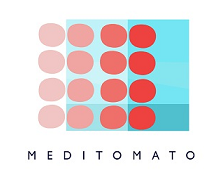The main goal of MEDITOMATO is to demonstrate innovative technology solutions in three demo-sites based on PRIMA countries covering the whole tomato value chain (from agricultural production to fresh product, processing and distribution) enabling this sector (including SMEs and smallholders) to progress at different levels (environmental, food quality & safety, sustainability, traceability, efficiency and water management) contributing to a consistent rural and social development of the Mediterranean agro-food sector supported on a quality, safe and sustainable production basis.
Specific objectives related to individual innovations
Objective O1: Design, engineering and assembly of in/on-line low-cost sensor system based on Visible-Near Infrared (Vis-NIR) spectroscopy for non-destructive monitoring of tomatoes quality during plant processing process. The main goal is the real time classification of tomatoes according to the main quality parameters (ºbrix, total acid content, firmness and colour) based on current regulations. This solution will have a direct impact on consumer trust by improving product quality and offering a healthier product.
Objective O2: Adaptation of O1 to a low-cost portable sensor system based on Vis/NIR spectroscopy for tomato maturity monitoring during harvest and growing process. The system will measure the maturity level of tomatoes according to ºbrix and acidity levels, which allows a non-destructive, rapid and low-cost method to monitor the harvesting process and optimize water and fertilization inputs.
Objective O3: Development of Internet of Things (IoT) based irrigation systems. The solution deployed will be based on soil sensors, flow meters and rain gauges and input from environmental and weather forecasting algorithms in order to realise data based decision-making.
Objective O4: Application of IoT technologies to control fertilise applications of fertigation units. In open-air fields available sensors and business intelligence algorithms will be applied to offer guidelines to optimize fertilization, looking for optimal concentration, sustainable use of harmful substances and less quantities.
Specific objectives related to integration of technologies in demonstration sites
Objective O5: Development of a global web platform aggregating O1, O2, O3, O4 as well as a food traceability system (FTS) and the related data analysis in cloud aiming to optimize the whole value chain. The goal is to optimize: (a) yield rates while respecting quality, safety and sustainability criteria; and (b) distribution logistics.
Objective O6: Integration and demonstration in three demo-sites in PRIMA countries (Spain, Italy and Turkey) of MEDITOMATO innovations (O1 to O5) under a whole value chain approach involving all relevant stakeholders (production, processing and distribution) to validate the results at technical, economical and social level.
Specific objectives related to results assessment and maximization of impacts
Objective O7: Microbiological Risk and Impact Analysis. The goal is to perform a qualitative microbiological risk analysis: (a) to identify hazards and potential sources of contamination; (b) to examine the possible impact of new technologies, production processes and/or growing conditions; and (c) to identify effective preventive controls to improve the safety of fresh products and apply them to each demo-site.
Objective O8: Analysis of the status of the food supply chains: quantification of the techno-economic, environmental (through life cycle analysis, LCA) and social (through social LCA, S-LCA) benefits of the solutions deployed in each site and study of the feasibility for the Mediterranean countries with simulation of business cases in other PRIMA countries for replication of the project after MEDITOMATO execution. This analysis will cover other countries (Greece, Tunisia, Italy and Spain) and also other crops where replication of MEDITOMATO solutions is technoeconomically feasible.
Objective O9: Dissemination, communication and awareness raising across the PRIMA countries and exploitation of results to maximize impacts of MEDITOMATO. Each partner generating outputs from the project will identify their key exploitable results (KER) and the ways to address markets, while a dissemination plan will be launched and updated for all project duration.


